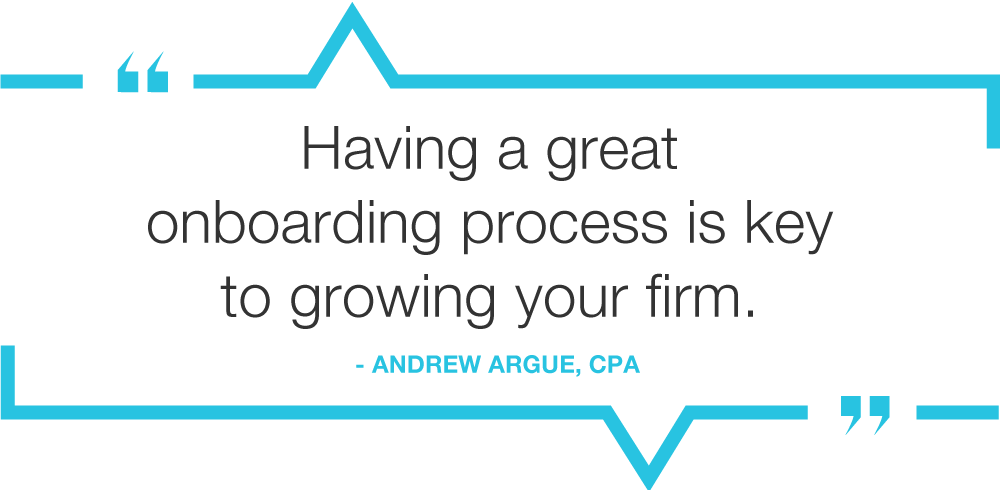
Accounting client onboarding can vary widely from client to client. For example, when you are doing onboarding for a tax planning client, the checklist is going to look very different from a CFO services client. You need a checklist that is specific to the particular industry you’re serving along with the particular service you’re providing.
So, a comprehensive accounting client onboarding checklist is not feasible. We recommend you make a specific checklist for each different service you offer. Have a specific request list for tax planning, a specific request list for CFO services, a specific request list for monthly accounting clients and so on.
That said, we want to help you create your own accounting client onboarding process, so we are going to give you an example onboarding checklist for you to begin putting together your own checklist.
Before we dive into that, let’s cover why you need a checklist to begin with!
Why do you need an accounting client onboarding checklist? It helps you and the client determine first steps and what information is needed for the engagement. It gives you a process that you can always follow to be consistent, and it helps you onboard clients more efficiently. A good checklist will also give the client a positive first impression of working with you. In short, it can help you get more accounting clients long-term.
Hopefully most of these questions have been clearly answered before onboarding an accounting client, but questions you must cover if you haven’t yet:
Do not onboard without knowing these conditions!
Scan client returns. Uncover savings. Export a professional tax plan. All in minutes.
Here are typical items you’ll want to have on your accounting client onboarding checklist:
Remember, onboarding for an accounting client will look different than a tax planning client, much less a checklist for a CFO client. The above is only just a basic example.
Here are some general questions you’ll want to cover during onboarding so there is clarity in scope:
Scope is one of the major problems many accountants have to deal with, and it’s primarily because they never define the scope of their engagements during the onboarding process when they're trying to get accounting clients!

A shorter onboarding time will make your accounting firm more successful over the long term. Each additional day that clients sit in the onboarding phase waiting to give you the right documents is time wasted. The goal should be to speed up this process to make it as efficient as possible.
For this reason, be clear on deadlines and penalties if they miss the deadline. As you begin the onboarding process, incentivise the client to get you everything you need so you can begin the engagement. Statements such as, “You need to upload these documents within 3 business days” gives a specific time frame rather than an indefinite period.
Explain that if they miss the deadlines you’ve set, they will incur additional fees due to rushed work, or their project start date will be forced to be pushed back. This provides a carrot to get them to act. The point is, you want to be clear that there is a time sensitive nature to getting the docs you need.
Use whatever resources you can to eliminate lag time, make it easier to send and receive documents, and organize the client’s entire profile in one place. For this reason, many accountants are now using accounting practice software such as Corvee Client Collaboration to implement a smoother onboarding process and get more accounting clients.
Here is a sample accounting client onboarding checklist. It is by no means comprehensive, and it should only be used as a template to build from:
Here is an example of a checklist used to onboard tax clients:
We highly recommend you implement accounting practice software into your firm so that every time you onboard a new client, you’ll have an easy client collaboration portal to send and receive files, collect payments and have the opportunity to begin to offer tax planning services.